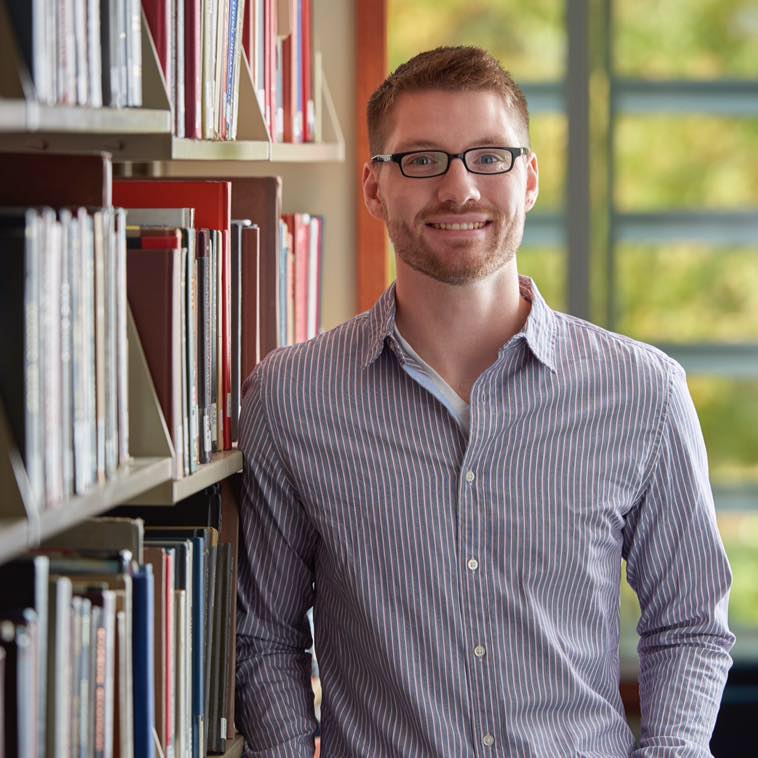Cody B. Stockdale
About me

Welcome! I am an assistant professor working with the analysis group at Clemson University. Send me an email if you would like to get in touch.
Things I enjoy
My main interests are thinking, discussing, reading, and writing about mathematics. Aside from math, I like to spend time with family, friends, and my dog (Franklin). I also enjoy traveling, hiking, jogging, and music.
Events
Assistant Professor of Mathematics
School of Mathematical and Statistical Sciences
Clemson University
Martin Hall O202
Email: cbstock(at)clemson(dot)edu
My research is in the general area of harmonic analysis. In particular, I am interested in the interplay between harmonic analysis and related areas such as complex analysis, operator theory, and partial differential equations.
Publication List
Preprints
-
[PDF] (with C. Waters) On the compactness of bi-parameter singular integrals. arXiv:2601.05454 (2026). [Submitted]
- [PDF] (with J. Chen, Z. Nieraeth, and N. A. Wagner) Weak-type bounds for the Bergman projection with Bekollé-Bonami weights. arXiv:2507.22363 (2025). [Submitted]
-
[PDF] (with C. Waters) Compact pseudodifferential and Fourier integral operators via localization. arXiv:2409.15096 (2024). [Submitted]
- [PDF] (with Z. Nieraeth) Endpoint weak-type bounds beyond Calderón-Zygmund theory. arXiv:2409.08921 (2024). [Submitted]
- [PDF] (with Z. Nieraeth and B. Sweeting) Weighted weak-type bounds for multilinear singular integrals. arXiv:2401:15725 (2024). [Submitted]
- (with A. W. Green, B. Sweeting, and N. A. Wagner) Weak-type estimates for the Bergman projection on planar domains. [In Preparation]
- (with V. Fragkiadaki and M. Mitkovski) Dyadic paraproducts on fractional Sobolev spaces. [In Preparation]
- (with D. Cruz-Uribe) To A_{\infty} and beyond: operator dependent weighted theory. [In Preparation]
Refereed Journal Articles
-
[PDF] (with M. Mitkovski) On the T1 theorem for compactness of Calderón-Zygmund operators. arXiv:2309:15819 (2023). [Accepted to Proc. Amer. Math. Soc.]
-
[PDF] (with D. Spector and D. Stolyarov) An atomic decomposition for functions of bounded variation. arXiv:2505.02053 (2025). [Accepted to Commun. Contemp. Math.]
-
[PDF] (with N. A. Wagner) Weighted theory of Toeplitz operators on the Bergman space, Math Z. 305 (2023) no. 1, Paper No. 10, 29 pp.
-
[PDF] (with M. Mitkovski, N. A. Wagner, and B. D. Wick) Riesz-Kolmogorov type compactness criteria in function spaces with applications, Complex Anal. Oper. Theory 17(2023), no. 3, Paper No. 40, 31 pp.
-
[PDF] A weighted endpoint weak-type estimate for multilinear Calderón-Zygmund operators, J. Geom. Anal. 33 (2023), no. 2 Paper No. 68.
-
[PDF] (with N. A. Wagner) Weighted endpoint bounds for the Bergman and Cauchy-Szegő projections on domains with near minimal smoothness, Indiana Univ. Math. J. 71 (2022), no. 5, 2099--2125.
-
[PDF] (with P. Villarroya and B. D. Wick) Sparse domination results for compactness on weighted spaces, Collect. Math. 73 (2022), no. 3, 535-563.
-
[PDF] (with D. Spector) On the dimensional weak-type (1,1) bound for Riesz transforms, Commun. Contemp. Math. 23 (2021), no. 7, 2050072, 19 pp.
-
[PDF] A different approach to endpoint weak-type estimates for Calderón-Zygmund operators, J. Math. Anal. Appl. 487 (2020), no. 2, 124016, 13 pp.
-
[PDF] (with L. Grafakos) A limited-range Calderón-Zygmund theorem, Bull. Hellenic Math. Soc. 63 (2019), 54--63.
-
[PDF] (with B. D. Wick) An endpoint weak-type estimate for multilinear Calderón-Zygmund operators, J. Fourier Anal. Appl. 25 (2019), no. 5, 2635--2652.
-
[PDF] (with D. Condon, S. Coskey, and L. Serafin) On Generalizations of Separating and Splitting Families, Electron. J. Combin. 23 (2016), no. 3, #P3.36.
It is a privilege of mine to share knowledge with students and colleagues. I strive to engage as an educator as often and in as many roles as possible. I particularly enjoy mentoring graduate and undergraduate research.
Courses Taught
Clemson University
- Linear Algebra: Math 3110 - Spring 2026 (2 sections), Summer 2022
- Linear Analysis: Math 8210 - Fall 2025, Fall 2023, Spring 2023
- Advanced Calculus I: Math 4530 - Summer 2025, Fall 2021
- Measure and Integration: Math 8220 - Spring 2025
- Complex Analysis: Math 8230 - Fall 2024
- Complex Variables: Math 4350 - Fall 2024, Fall 2021
- Functional Analysis: Math 9270 - Fall 2023, Fall 2022
- Introduction to Ordinary Differential Equations: Math 2080 - Spring 2022
- Calculus of One Variable I: Math 1060 - Summer 2021
- Fourier Series: Math 8310 - Spring 2021
- Calculus of One Variable II: Math 1080 - Fall 2020 (2 sections)
Washington University in St. Louis
- Foundations for Calculus: Math 100 - Summer 2019, Fall 2018, Summer 2018, Fall 2017, Summer 2017, Summer 2016
- Introduction to Statistics: Math 1011- Summer 2019, Spring 2017
- Elementary to Intermediate Statistics and Data Analysis: Math 3200 - Spring 2018
- Discrete Mathematics: Number theory, Combinatorics, and Graphs: Math 220 - Summer 2016